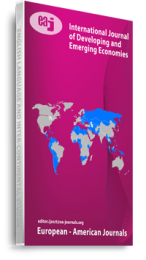The global Advocacy for Education for All (EFA) has its origin in Article 26 of the 1948 Declaration of Human Rights by the United Nations (UN). The Advocacy has gone through phases with limited success in the achievement of the cardinal objective of global inclusive education for humanity’s survival and socio-economic development. The present (2015-2030) phase is anchored on 17 Sustainable Development Goals (SDGs) and targets African and other countries facing special developmental challenges. It has been observed that environmental literacy is at the heart of the SDGs. The purpose of this paper is to review the objectives and achievement levels of the various phases of the global EFA Advocacy and expound the desirability of incorporating Environmental Literacy Education (ELE) into the ongoing EFA Agenda, especially in developing countries. After a research-based exposé of the developmental benefits of integrating the competences offered by ELE with those provided by UNESCO in its Guidelines for achieving the SDGs, the paper concludes that incorporating ELE into the ongoing global EFA Agenda is highly desirable and goes on to suggest modalities for the incorporation.
Eheazu C.L. (2023) Desirability of Incorporating Environmental Literacy Education into The Global Efa Agenda with Focus on Developing Countries, International Journal of Developing and Emerging Economies, Vol.11, No.1, pp.1-18
Keywords: Desirability, Environmental literacy education, developing countries, global education for all agenda, incorporation

